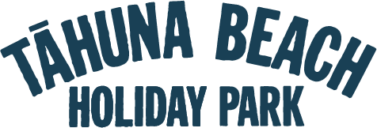Mana Whaitake o Whakatū: A Proud Partnership

Each year we are proud to sponsor and host Mana Whaitake o Whakatū, an inspiring event for school children led by Tasman Bay Guardians in collaboration with experts from the Cawthron Institute, Nelson City Council, Otago University, and the Nelson Museum.
Mana Whaitake embodies the concept of “worthwhile endeavour” or “meaningful achievement,” combining “mana” (prestige, authority, and spiritual power) with “whaitake” (worth and purpose), while Whakatū refers to it being focused on Nelson. The initiative reflects Tāhuna Beach Holiday Park’s own guiding principles of manaakitanga (showing respect, generosity, and care for others) and kaitiakitanga (protecting and preserving the environment), where we strive to support our community and environment and promote sustainable practices that protect our natural surroundings for future generations.
Since its inception in Kaiteriteri in 2017, Mana Whaitake has grown into a significant event, bringing together schools from across the Nelson Tasman region. Through interactive, hands-on activities led by the experts, students and teachers engage with the coastal environment to foster a deeper appreciation for our rich marine biodiversity and local history.
When Tasman Bay Guardians expanded the initiative to Nelson in 2024, Tāhuna Beach Holiday Park immediately got involved as the host (the Park has 1km of coastline) and key sponsor of the annual event which so perfectly aligns with our values, fostering a passion for ocean conservation, ecosystem preservation, and sustainable living in the young participants.
Throughout the day, school teams from some 10-12 schools rotate through six hands-on learning stations, where they discover the wonders of marine life, explore the unique local ecosystem, including the sea meadows just offshore, and uncover the history of our coastal environment.
In 2025, for example, activities included examining beach taonga (treasures) from the Nelson Museum, studying whale surveys, marine rescue, and mudflat ecosystems. Students also honed practical skills, such as fish dissection to learn marine anatomy, sizing shellfish and fish, and delved into the unique ecology of Back Beach along with its elusive Back Beach beetle through art and science. One engaging station focused on the resurgence of horse mussel beds in Tasman Bay—following last year’s collaborative mapping exercise, which revealed new locations for these rare beds.
To celebrate their achievements, teams are scored at each station and the day culminates with a prize-giving.
We look forward to continuing this meaningful partnership and hosting many more of these impactful events in the years to come.
To view some of the highlights of these events, click on the short videos below.
